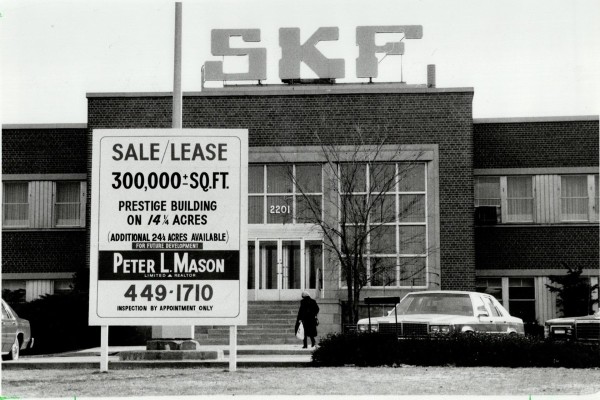Tinkering While Canada Burns
In the midst of the greatest economic crisis this country has seen since the Great Depression, and an accelerating climate-change crisis whose damages will be massive and permanent, Canada’s prime minister, Stephen Harper, chose to suspend Parliament to avoid facing the elected representatives of the people and being defeated in a motion of non-confidence.
The PM then spent the next week tearing apart his opponents accusing them of fomenting an “undemocratic seizure of power” by means of “backroom deals with separatists,” declaring that his government is acting to protect our democracy and the unity of our country.
“Patriotism is the last refuge of a scoundrel,” wrote Samuel Johnson. Wrapping himself in Canada’s colours while denigrating the votes of hundreds of thousands of Quebecers who voted Bloc, patriotism has clearly become the last refuge of Stephen Harper in his struggle for political survival.
An Ipsos Reid poll found that the hysteria whipped up by Harper left 75 per cent of Canadians “truly scared” for the future of their country.
Canadian democracy is under threat, and the threat is the Harper government. Political scientist Nelson Wiseman warns that Harper’s action gives future prime ministers the right to escape defeat on non-confidence motions simply by shutting down Parliament and locking its doors.
The way our system works, people do not vote for a government or prime minister. They elect local Members of Parliament and a government holds power only as long as it has the support of a majority of those Members - whether that majority originates from a single party or from two or more parties. If the party in power fails to garner support from a majority of elected Members and another party or collection of parties is able to do so, they must be given the opportunity to form a government. That’s how democracy works in a parliamentary system - and Stephen Harper knows it.
As of this writing (December 10), we cannot know what will transpire on January 27 when the Conservatives present their budget. But it seems to us that the moment of Coalition is gone, or else the Liberal Establishment would have let Bob Rae have a go. With Iggy in the catbird seat now, the most likely outcome is that the Liberals will accept the Tory budget, so long as it incorporates some of the rather thin content of the Coalition Agreement. Harper is easily capable of pulling off such a strategic manipulation.
Credit where credit is due. The threat of the coalition replacing his government caused Harper to put aside some of the most brutal elements of his November fiscal update. But beyond that, we cannot imagine a Liberal-NDP coalition government producing a budget that will halt this economy’s downward spiral, set down regulations that will significantly reduce greenhouse-gas emissions or undertake any of the other measures needed to repair the damages of decades of neoliberal rule. Plain and simple, neither party has shown a willingness to take on disaster capitalism.
Targets and Goals for the Left
In any event, coalition government or no coalition government, what should the Left be campaigning for?
Besides recovering the programs taken from us by the Martin/Harper regimes, we need to campaign for an overhaul of Employment Insurance, and, with the manufacturing sector shedding more and more jobs due to declining markets, technological change and the buildup of massive excess capacity, we must have an intensive labour transition program in all regions of the country.
We need to strengthen public pensions, build vastly more public housing and establish universal child care - finally.
We need to call for the implementation of the Kelowna Accord and the enforcement of Aboriginal and treaty rights now recognized by the courts. Surely, if money is to be spent on roads and buildings, why not on reserves?
Electoral reform by way of proportional representation has to be high up in our demands for change.
We need a government that will institute a moratorium on the tar sands, pass tough regulations to slash greenhouse-gas emissions and direct new public expenditures to wind farms, solar panels, public transit, retrofitting homes, apartment buildings, office buildings, schools and hospitals. Green public-stimulus expenditure generates the most jobs, as well as being among the most effective way to help stopping global warming.
In short, we need to campaign for a budget and a legislative program that produces services and jobs where they are needed, for people who will benefit for many generations.
Toward and Ecosocialist Future!
But more than this is required. Neoliberal ideology is reeling. For the first time in over seventy years, capitalism is on the defensive. None of the hundreds of billions of public dollars injected into the financial system since August, 2007, have restored the banks’ willingness to lend at anything like previous levels. The banking system is so dysfunctional that even the Financial Times is warning that public ownership may be the only solution. Moreover, deficit spending, no matter how large, may not be sufficient to pull this economy out of its current slump.
Surely we cannot settle for bailout capitalism. It won’t solve the disastrous state of the economy, and it does nothing to address the perilous state of the planet.
We need to be discussing a whole new order. Here, in Canadian Dimension, we call it ecosocialism. What is its scope?
We need to rearrange our cities and our economy to allow us to stop pouring carbon into the atmosphere, so that the climate ecosystem can be healed. Addressing the environment as if it really matters means transforming everything we produce and how we produce it.
Rather than closing facilities that are part of this economy’s problem of excess capacity, why can’t they be converted to produce the new or modified products an environmentally conscious economy will need? With unemployment rates soon reaching double-digit levels again, we need to revive the question of work-time, which has faded from lists of working-class demands. The labour movement has long advocated reduced work-time as a way of sharing the better full-time jobs and therefore opening up new jobs, or at least preserving existing ones. This can be very important in particular sectors, and is also a valuable principle of solidarity. But its greatest significance lies in another working-class perspective that goes back to the earliest days of trade unionism: the recognition that full citizenship and political participation demands the time to do so - - the time to read, think, learn, attend meetings and events, debate, take part in strategizing, and engage in organizing others.
In fact, none of this can happen if we “leave it to the market,” or even with some ad hoc patchwork government intervention. It requires serious national- and city-level planning - planning that develops the democratic structures to encourage and facilitate popular participation.
We realize that it is easy enough to talk in these pages about the big changes we want to see happen. Far more difficult is the job of building a real coalition of the Left that will organize the hundreds of forums that should be taking place every week in cities across this country. Or, much bolder yet, follow the Greek example of organizing a general strike against government economic policy.
As Dimension collective member Sam Gindin has written: “This is not simply about pooling our diverse strength. Rather, it involves recognizing that in light of past failures, a dangerous future and potential new openings, each section of the movement needs to rethink what it does and how it does it as a precondition for coming together in an entirely new way.”
This article appeared in the January/February 2009 issue of Canadian Dimension (Indian Country (in the city)).









